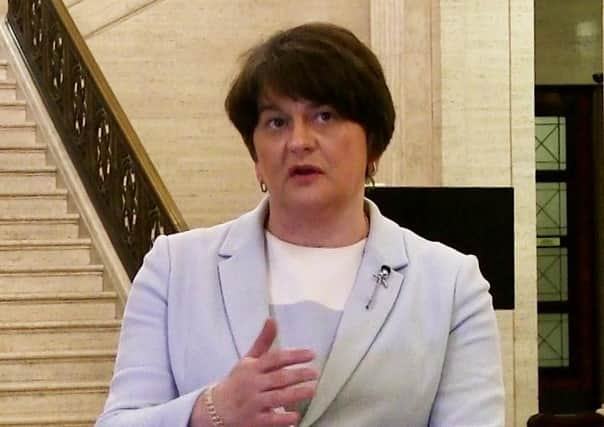Arlene Foster: ‘common purpose’ not present in 1921 can make NI a success


Speaking at a Queen’s University event on Thursday, the First Minister said that the centenary year can also be an opportunity to “re-examine past decisions” that have shaped Northern Ireland – including a fresh look at proposals to create a common education system.
“My key reflection on our first century is our many successes were weakened by the lack of a common purpose. We did not harness the talents of all our people for the common good,” Mrs Foster told the “Reflections on the Centenary of the Government of Ireland Act” event.
Advertisement
Hide AdAdvertisement
Hide Ad“2021 can be an opportunity to re-examine the past decisions that shaped Northern Ireland. Lord Londonderry’s early proposals to create a common education system were not implemented. Is 2021 the time to re-start that debate?
“Beyond 2021, I believe the common purpose of the vast majority is to make Northern Ireland a success.”
Mrs Foster said: “As a political leader when I look back at the decisions of my predecessors, I do not always agree but I can understand. Each of us must lead according to our time. A knowledge, an appreciation and an understanding of history is vital but we must not be prisoners of it.
“Some ask will the centenary year be a reflection, a commemoration or a celebration?
Advertisement
Hide AdAdvertisement
Hide Ad“For me it must be all of those and more, we must look forward to the new century ahead.”
Mrs Foster added: “The Northern Ireland of 1921 was of its time. The Northern Ireland of the new century must be of ours.
“Our Northern Ireland, is not one of two communities or of two ideologies. Many of us who lived through or were born in the years of terrorist violence had an urgency and attachment to our politics and identities. Unsurprising when the mode of persuasion was violence.
“Over two decades of substantive peace new generations have grown up in Northern Ireland free of threat with their own outlooks and identities. Unionism and Nationalism doesn’t mean as much or the same as it did before. Their political priorities are not constitutional debates but focused on our political institutions working and delivering for Northern Ireland.
“For the past few months I have been regularly meeting young people from across Northern Ireland to learn about and appreciate their aspirations to shape a vision for Northern Ireland beyond 2021.”